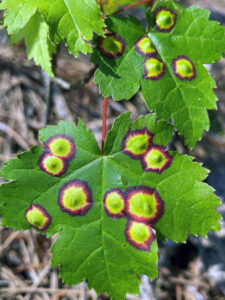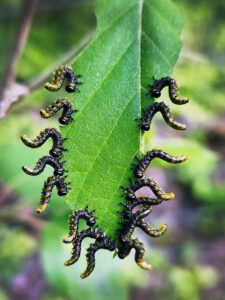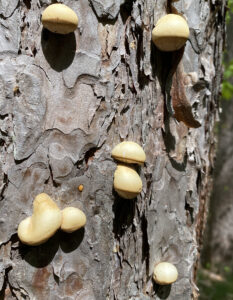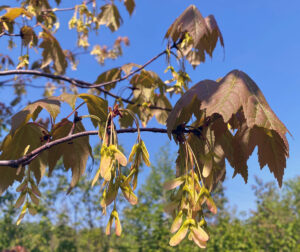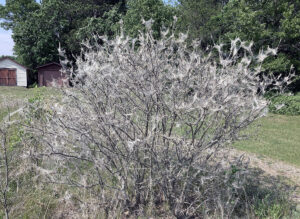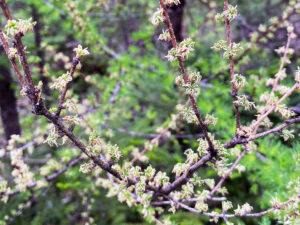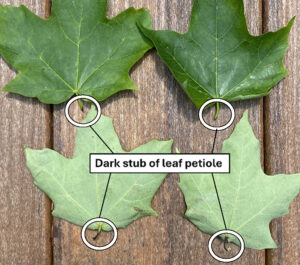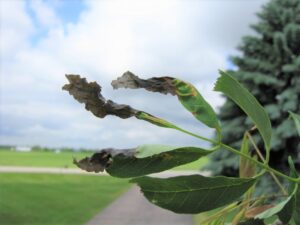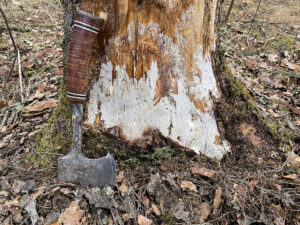
Bark has been removed from a declining white spruce to show the white mycelial mat of Armillaria under the bark. / Photo Credit: Linda Williams, Wisconsin DNR
By Linda Williams, DNR Forest Health Specialist
Linda.Williams@wisconsin.gov or 920-360-0665
Armillaria is a root-rot pathogen that usually lives quietly under the soil. But when trees experience stress, the fungus can attack and colonize the roots of the stressed tree.
Armillaria can infect many different species of trees, and trees of any age or size, but the result for the tree is usually a slow decline and eventual death. Stressors can include drought and flooding, defoliation from insects or diseases or physical damage such as when roots are severed.

